An uncanny mixture: God, alcohol and even cannabis
- Published
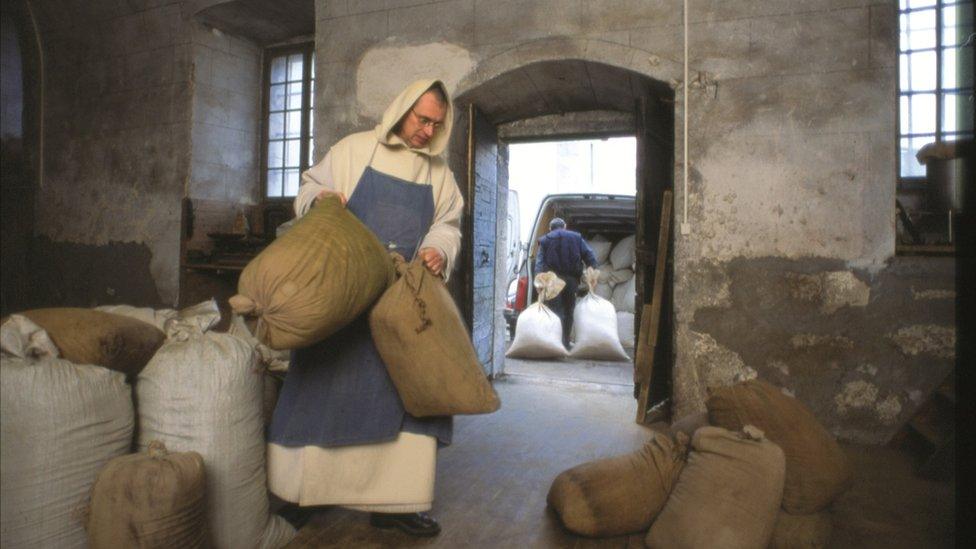
Chartreuse monks use a mixture of 130 plants to make a liqueur with a recipe said to date from 1605
Nestled high in France's Chartreuse Mountains, the Grande Chartreuse monastery is home to a cloister of Catholic monks.
Adherents of the Carthusian order avoid contact with the outside world, the better to focus on contemplation and prayer.
But this other-worldly setting is the birthplace of a very worldly product, Chartreuse - a strong alcoholic liqueur made from a recipe said to have been given to the Carthusians in 1605.
The monks of Grande Chartreuse are not alone in these sorts of endeavours.
Religious orders have long produced alcohol (think beer from Trappist monks or tonic wine from Buckfast Abbey) for economic and medicinal reasons.
And some of these products have never been so popular. In an era when the provenance of food and drink is increasingly important, a drink with such distinctive roots carries a certain prestige.
The Chartreuse brand sold 1.5 million bottles worldwide in 2015, selling for about €50 (£44) a bottle, and with all profits going to support the order and its charity projects.
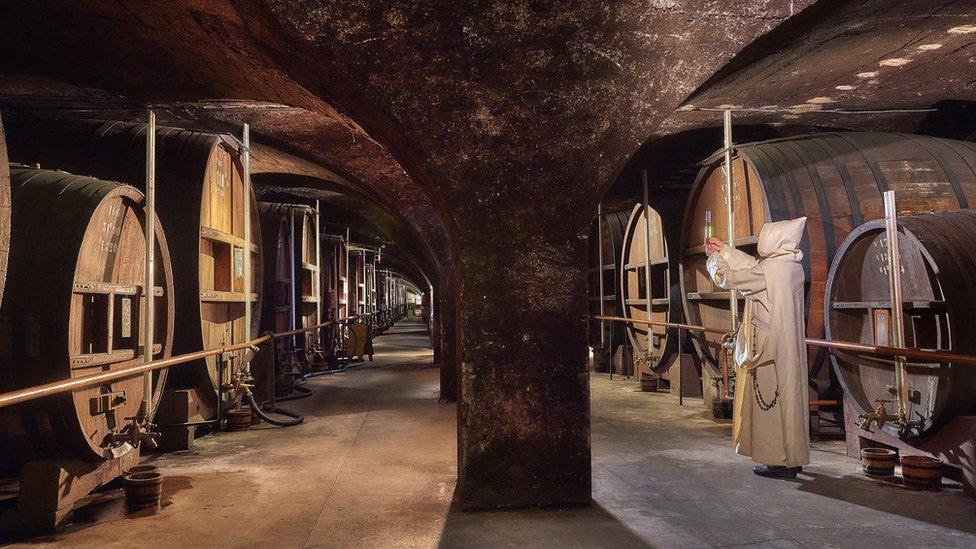
The Chartreuse recipe is a secret - most monks do not even know it
Chartreuse is made from 130 plants, herbs and flowers. But the recipe is tightly controlled, with most of the monks kept in the dark about the exact ingredients and the ageing process of the drink.
Just three monks make the plant mixture, which is delivered to the distillery in plain packaging so the ingredients cannot be identified by employees from outside the monastery who help with production.
Safety hazard
Monastery guide Mathilde Perrin says that outsiders "know really very little about the production". Since the operation is owned by the monks, they "do what they want and they're not obliged to tell anyone what they're doing," she says.
Based at Voiron, a village near Grenoble, the distillery is about 15 miles from the monastery at Saint-Pierre-de-Chartreuse.
The first distillery, built in 1840, was at the monastery itself. But as production expanded, the noise and commotion disturbed the monks' contemplative way of life.
The operation moved to several sites over subsequent decades, and will move again in 2018.
Due to the amount of alcohol vapour, the distillery was deemed a safety hazard, and so will relocate to a more remote site.
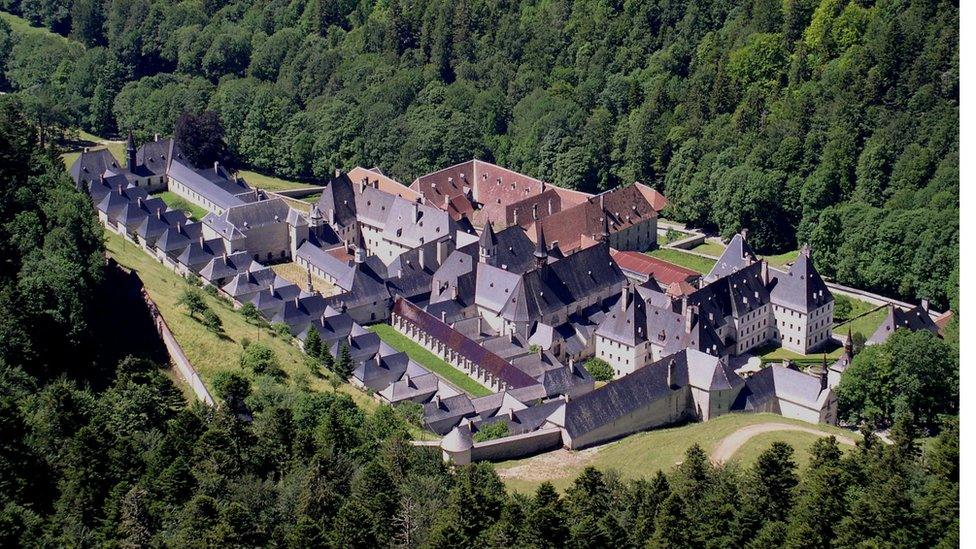
Chartreuse was brewed at the Grand Chartreuse Monastery until 1860
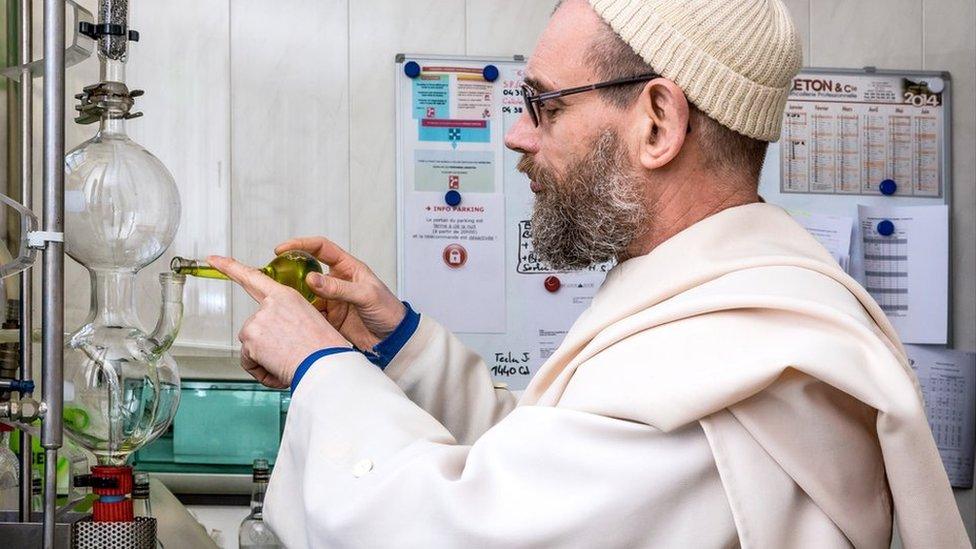
Just three monks make the plant mixture but the monastery also gets production help from outside
"The government calculated that if something exploded, we would be capable of blowing up all of Voiron," says Ms Perrin.
Although a handful of people work at the distillery, the monks control the operation remotely from the monastery, using computers to adjust temperatures during production and even shut down the process if necessary.
Slow living
You'll also find a mixture of old and the new technology at Andechs Abbey, south-west of Munich, where Benedictine monks have brewed their namesake beer since 1455.
Under Benedict's doctrine, followers are encouraged to complete tasks in a slow and steady manner. Saint Benedict didn't have anything to say about producing beer - but his doctrine makes an ideal approach to brewing.
"You can't make things happen faster while brewing or living as a monk," says Mr Martin Glaab, head of public relations. "We are convinced that the monastic beer tradition needs time to create a high quality product."
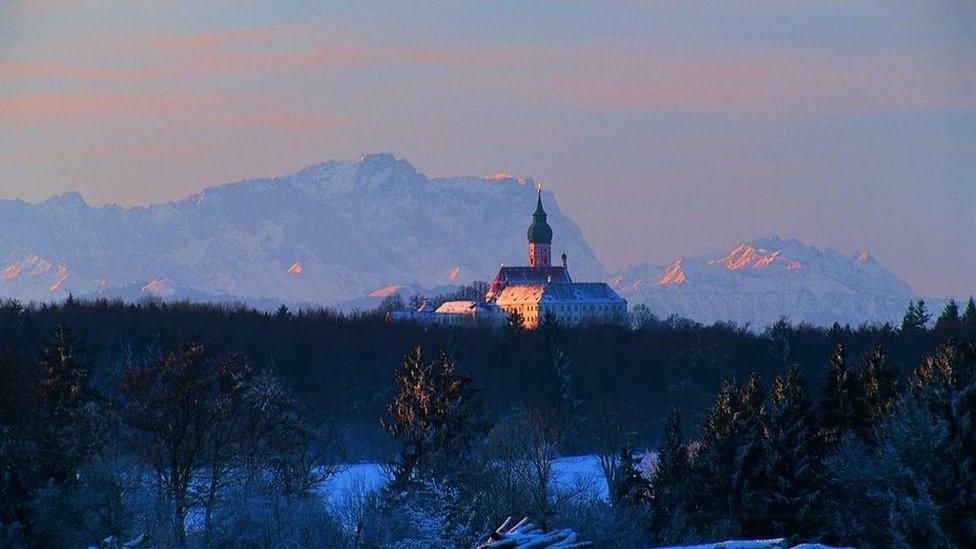
Andechs Abbey is built on Holy Mountain about 25 miles from Munich
Service to others is another important tenet of the Benedictine tradition, including hosting pilgrims. As more religious travellers arrived, the monks needed to provide for them, which Mr Glaab calls "the very origin of the Andechs brewing tradition".
The monastery now receives a million visitors each year.
With 100,000 hectolitres of beer sold each year, a pint of Andechs pale ale retails for €4 at the monastery restaurant. As at Chartreuse, profits at Andechs support the order and charitable work.
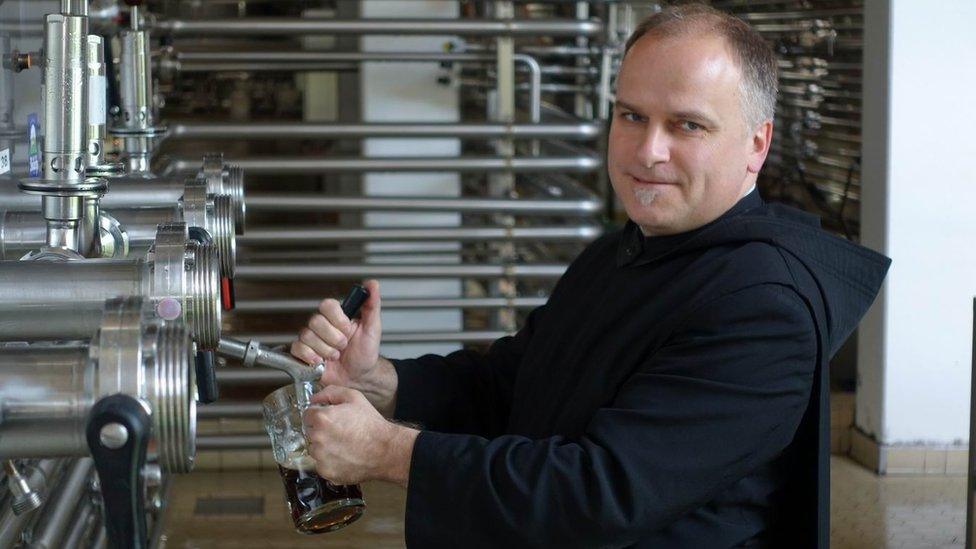
Andechs is brewed in Bavaria, a region known for the quality of its beers.
What's behind the increasing popularity of such drinks?
Beth Bloom, a food and drink analyst at global market research group Mintel, says it's about consumers' growing interest in the origins of food and drink, and suspicion of industrialised production processes.
She says: "One of the things that would resonate with these monastic drinks is their source - their makers. There is this interest in craft, and artisan, and where [the product] is coming from; techniques that have gone into it.
"A desire for a more authentic experience comes into play here," she says. "Beer being brewed in a monastery with years and years of heritage probably really resonates and appears as a specialty product. That is something consumers would like to take part in."
Some religious orders have even moved beyond alcohol, to what might be called more modern products.
Through prayer and meditation
On a farm in Merced, California, nuns from the Sisters of the Valley, show their devotion to healing through medicinal products made from their own marijuana crop.
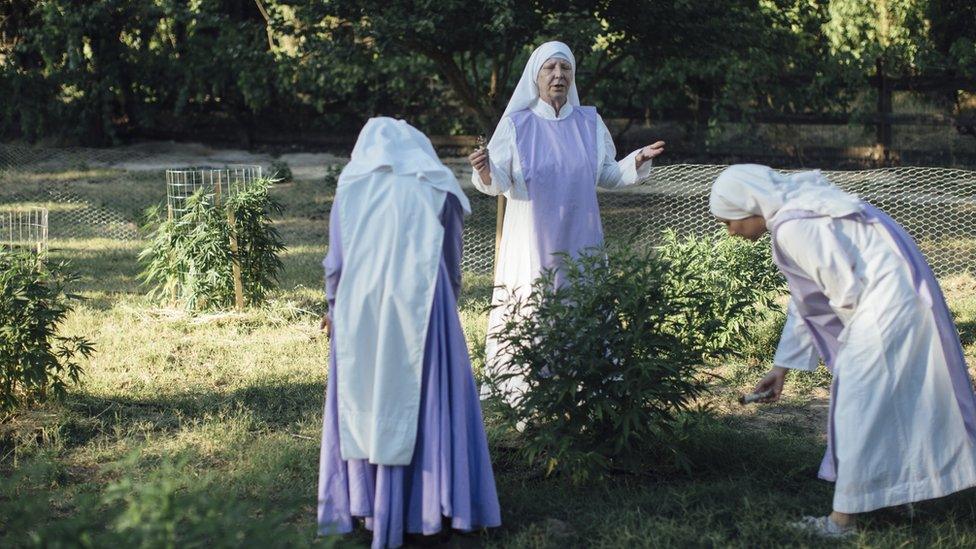
Nuns from the Sisters of the Valley pray and meditate while preparing medicinal products made from their marijuana crop
Sister Kate Meeusen founded the non-aligned religious order in 2015. While dressed in Catholic habits, the group's spiritual practices are derived from what they call "ancient wisdom".
"We ask ourselves, 'what would our ancient mothers do?' when we have dilemmas or decisions to make. That's our guiding principle," explains Ms Meeusen.
The group's beliefs form the core of their business practices. Production follows the lunar cycle. The women pray and meditate while preparing the recipes in the abbey kitchen.
The end results are not intoxicating, however, as they are made from cannabidiol (CBD). Since the compound contains no psychoactive properties, products are classified as hemp, legal for sale and export internationally.
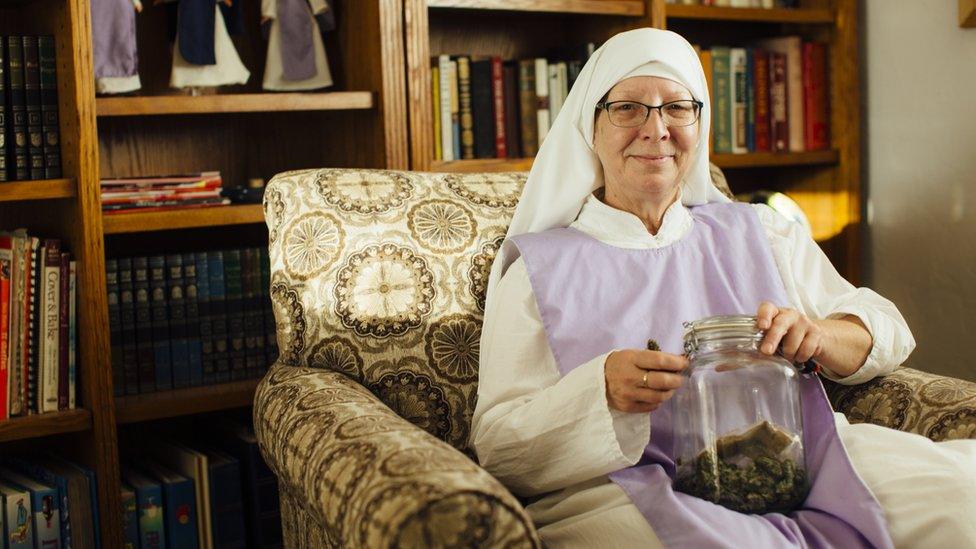
Sister Meeusen says there were attempts to get the nuns to move
Ranging from $85 (£65) to $95 (£73) per item, customers can purchase their CBD oil, salve, or tincture online. In 2015, the turnover was $60,000 (£46,278), with profits paying for salaries and the farm's upkeep.
Given the source product used, there were attempts by local authorities to get the nuns to move operations elsewhere, something that Ms Meeusen has resisted "head on", she says.
The operation may not yet have the history or cultural significance of a Trappist beer from Belgium - but it has devoted supporters.
Javier Sanchez, a user of CBD oil and tincture for health problems, says: "There are a lot of things in this world that could offend you, but I don't think this is one to be offended about."